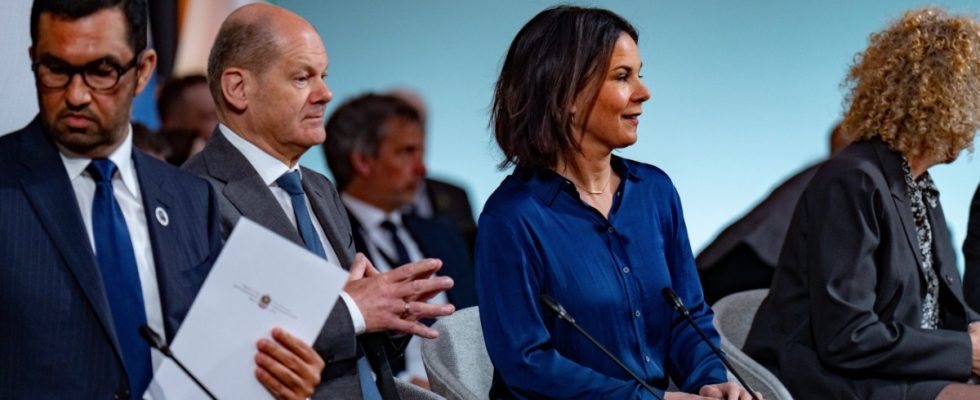Of course, the Federal Chancellor did not attend the press conference with Sultan Ahmed al Jaber, otherwise he might have spoken differently. Instead, he praised the United Arab Emirates, the host of the next major climate conference, for which Minister al Jaber is currently touring the world, to the skies. “Precisely because the success of the United Arab Emirates was based on fossil fuels,” the chancellor said, “their turn to renewable energies is all the more impressive.” Al Jaber had just made it clear that he also thinks renewable energies are great – but that doesn’t mean he wants to turn his back on fossil fuels for a long time.
Scholz spoke at the end of the Petersberg climate dialogue, which the Federal Republic organizes once a year. But this year the hosts are only moderately enthusiastic about their own event. Because instead of sounding out the interests of industrialized and developing countries, of those who cause them and those who suffer, a rift is now opening up: What next for fossil energy?
For years, the international community has been struggling to find a common position on the so-called “phase out”, the exit from fossil fuels. At the Glasgow summit, she was almost ready to seal it, at least for coal – until China and India scaled back the exit. Al Jaber, the designated president of the next climate conference (COP 28) in Dubai, has now developed his own language for it. He calls for the “phasing out of fossil fuels emissions“.
Technologies that harm the climate could have a future
Energy or emissions – what sounds like a small word is actually a huge backdoor. Because al Jaber, who evokes the importance of rapid action and “true change” in great words, is aiming at technologies to get rid of fossil fuel emissions in purely mathematical terms. This can be done, for example, by capturing carbon dioxide elsewhere and storing it underground. Carbon Capture and Storage, or CCS for short, is the name of the method. Natural gas can also be relieved of the CO₂ in this way.
The Europeans are suspicious of this and fear that the new opportunities will be misused. Ultimately, technologies that should actually disappear because of their climate damage could be given an apparent future. “That’s the big conflict that’s brewing here,” says Christoph Bals, head of the development organization Germanwatch. The decisive factor now is whether the Europeans can form a broad alliance to prevent the exit from being reinterpreted.
The day before, Federal Foreign Minister Annalena Baerbock (Greens) had campaigned for a new goal for the international community, namely one for renewable energies. “Our aim for the COP in Dubai must be to herald the end of fossil fuels,” she said in the presence of al Jabers – who also happens to be the head of the state-owned oil company Adnoc. And the Chancellor also praised the cheap renewable energies over the green clover. “I am more confident than ever that the movement towards renewable energies will continue and strengthen,” said Scholz. Change is possible – if you want it.

